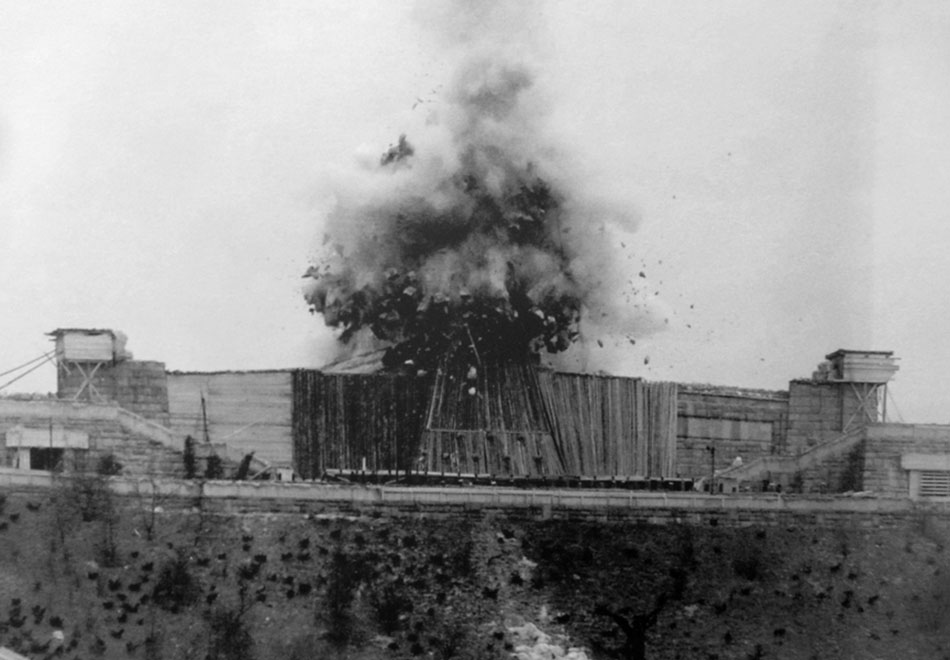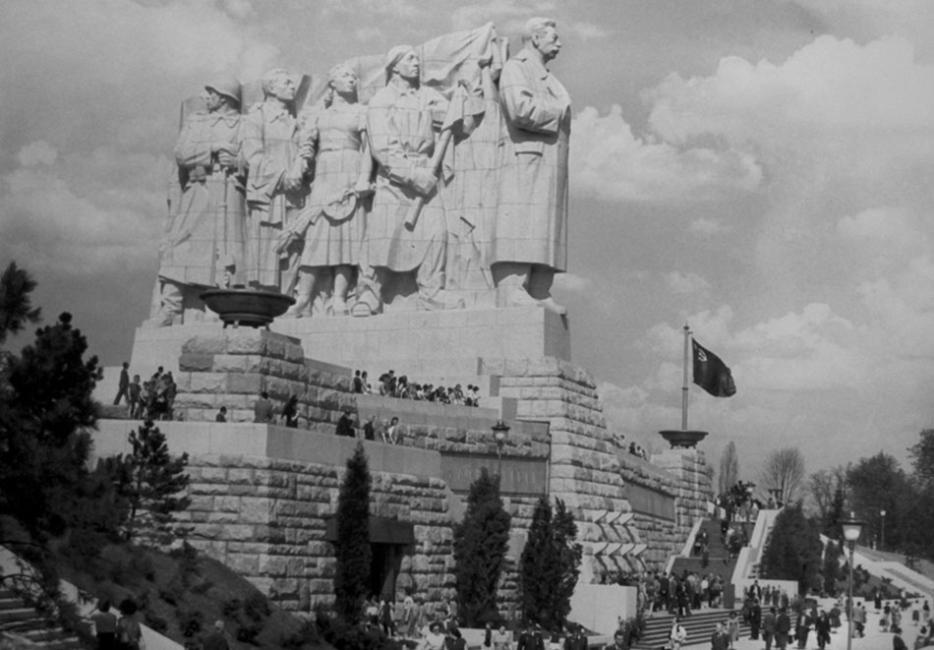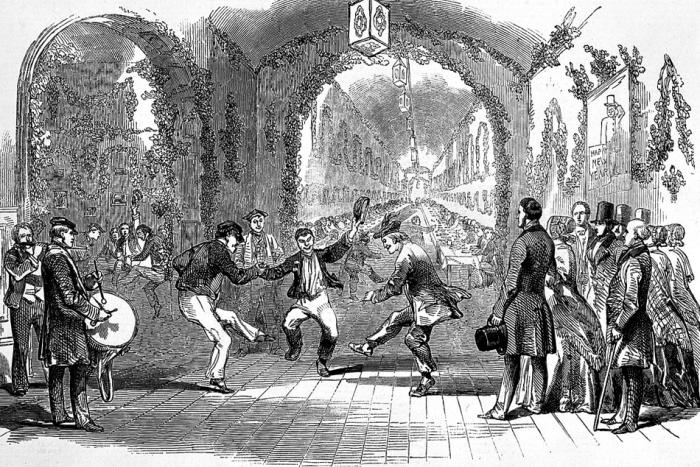Here’s a familiar story. In the early ’50s, in Prague, the writer Lenka Reinerová was arrested and put in solitary confinement. She didn’t know why. When she asked, she was told, “You know better than anyone.” She spent 15 months in jail before being released without a trial. After her release she found that her family had been evicted and a stranger was now living in her apartment. Years later, when she sought documentation on her case, the authorities told her that she probably imagined the whole thing.
The story is familiar, of course, because of Kafka: Reinerová is K. in The Trial, which somehow manages to tell the story of communist Czechoslovakia decades before it actually happens. In fact, the Czechs have a word, kafkarna, to describe that which is absurd and impossible to explain, but somehow seems inevitable. Reinerová’s story is a case of kafkarna.
Kafkarna is also familiar to certain 21st-century Americans, like Earl Sampson of Miami Gardens, Florida. Sampson has been stopped by police 258 times and searched over 100 times in the last four years. He has also been arrested for trespassing 62 times, with most of those arrests taking place at a store called 207 Quickstop. It’s true that Sampson has spent a lot of time at 207 Quickstop. He was an employee there.
Neither Lenka Reinerová nor Earl Sampson are heroes. They did not stand up to authority to make a point. They were simply conducting their lives. Of course, it’s more complicated than that: they were conducting lives that, by definition, attracted attention. Renierová was a writer and intellectual and therefore assumed to be possibly maybe a potential enemy of the state at some point in the future, if she wasn’t already. “If someone is alive, he’s always a suspect,” said a certain Major Pokorny at the time. Earl Sampson is African-American.
It is hard to read Mariusz Szczygiel’s remarkable and odd book Gottland: Mostly True Stories From Half of Czechoslovakia without thinking of Earl Sampson, and Trayvon Martin, and Michael Brown of Ferguson, Missouri, and any number of cases of American “justice” that are absurd, impossible to explain, and which seem, on the worst days, inevitable. It’s a book about institutional kafkarna in the country where the concept was invented, and not only the victims but those who discovered, by example, that the best way to survive in a totalitarian state is just to go along with it. That too has its modern parallels.
Szczygiel (pronounced SHEE-gull, almost like the bird) tells the story, for example, of Otakar Švec, a 56-year-old sculptor who won a state commission to build a statue of Stalin. Švec’s problem was that he didn’t know how to play the game. Fifty-four artists had been instructed by the Czech government to submit proposals, and most had the good sense to sabotage their own plans, to make them plausibly ridiculous or somehow unappealing to the jury. “Thank God,” Szczygiel writes, “the top Czechoslovak sculptor Ladislav Šaloun is lucky enough to be dead.” But Švec, after a few drinks, drew up a plan showing Stalin leading a flag-waving group of comrades, soldiers, scientists, the standard banality. He was not a well-know artist: he was known for making sculptures out of sugar. He won the competition.
The monument was to be huge, and stand on a hill overlooking the Vltava River in Prague. Years later, as construction began, concerns were raised: who are these people grouped behind Stalin? Why are they looking back and not at the leader? It looks like they are standing in line for meat. It looks like one comrade has her hand on the soldier’s crotch. And so on. Švec was in trouble. He couldn’t sleep. His wife committed suicide. The thing was built but was soon deemed a failure, and Švec was ordered to oversee its destruction. Not long after, he, too, committed suicide. Moral of the story: never put yourself in the spotlight. That’s how they find you.

In tracking down the story, Szczygiel meets an old man who remembers the monument on the Vltava, and asks him about Švec’s sad tale. “There was no talk of any suicide,” says the old Czech. “Nothing was known about it at the time.” The author is struck by the language: impersonal, passive, guarded. It’s how people spoke about life under communism. “As if people had no influence on anything,” he writes, “and were unwilling to take personal responsibility. As if to remind me that they were just part of a greater whole, which also had some sin of denial on its conscience.”
The title of the book comes from a theme park in Jevany, near Prague. It opened in 2006 and was at one time the summer home of Karel Gott, the country’s most famous pop star in the ’70s, ’80s, and after the fall of communism. He is, Szczygiel says, a cross between Elvis and Pavarotti. He’s won thirty Golden Nightingale awards and has written many books including In Bed With Gott: A Guide to the Golden Nightingale’s Love Life (2000). Gottland is like his Graceland, only he’s not buried there, since he’s still alive. Busloads of tourists, mostly seniors, go there to poke around his kitchen.
In the ’70s, some artists, including Václav Havel, signed a charter criticizing the state for its crackdown on free expression. Not only did Gott refuse to sign, he blamed the charter on Western interference, in particular from Israel. Those who did sign were blacklisted or worse, wound up working as window cleaners if they were lucky. Gott, meanwhile, earned the imprimatur of the state and became the Golden Nightingale. For Szczygiel, the reason Gott wasn’t denounced after the fall of communism is simple: he represented the ambivalence of the silent majority. People could relate to him, and through him could justify their own silence in hard times. His fans, the people who lined up at Gottland, “made it through communism with him… Getting inside Gottland is like obtaining a seal of approval: the past is okay.”
One fact about totalitarianism is that it creates a kind of necessary, if wildly dysfunctional, family: it’s easier to sit on your grievances for the sake of getting through Thanksgiving dinner unscathed. In America, many in the silent majority are mad about the police state as it’s been rehearsed in Ferguson, mad about the arbitrary nature of justice, where men and women can be arrested or shot for being black on a sidewalk. But many, too, just hope it all goes away, since it looks to them like so much kafkarna: too complicated and absurd for any kind of moral certainty.
But as John Lanchester wrote in The New Yorker, in a piece about economic jargon, “incomprehension is a form of consent.” Crying kafkarna, in other words, is a copout. It was true in Czechoslovakia, and it’s true now, closer to home.






